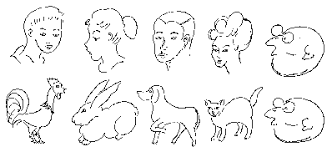Perception can be defined as the set of mental experiences that arise when your brain processes sensory data from organs like eyes, ears, skin, tongue and nose. Here are 3 important ways Perception may be impacting your behaviour:
- You dismiss other people’s choices
Because the processing of sensory data takes place in your own brain, your perception of the same stimulus can be quite different from someone else’s. This is true even of a stimulus like sound whose properties like volume, pitch and tone can be scientifically objectively measured. So now you know why you find it unbelievable how some people find music in rock concerts whereas you perceive it as only noise.

- You attribute other people’s behaviours to their character
In psych-speak, this is called fundamental attribution error – when you ascribe the same behaviour in others to a character trait – usually a flaw – that in your own case you would excuse as resulting from the pressure of a situation. A typical example is jumping a red light on the road – in another driver, you would perceive it as evidence of a rash and dangerous personality while if you do it, you would excuse it arising out of an urgent situation like being late for work or a need to reach home quickly. This is an example of social perception at play since rather than processing just sensory inputs – as in perception – the brain here is processing information about other people from their physical appearance, verbal, non-verbal communication to arrive at certain impressions about those people.
- You fall prey to stereotypes
People tend to perceive what they expect to perceive. This is because while growing up, each of us acquires a perceptual set – a tendency to perceive a stimulus in a certain way based on previous experience. The Rat/Man drawing is a popular example in explaining perceptual set.

The same figure on extreme right can be perceived as a man as well as a rat. This is because it is presented as part of a set of related items – human faces in the upper set and animals in the set below. Translated into social situations, such perception biases can lead to stereotypes. So if you have been brought up to believe that certain communities have specific ways of talking, dressing and behaving, it is quite likely that you will stereotype a member of that community even before you know him/her fully well.
It is important we remember how perception works so that we can avoid biases, stereotypes, prejudices and work towards effective communication and better relationships.
Great post😀
LikeLike
Thanks 🙂
LikeLike